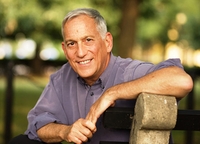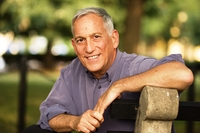Acclaimed biographer Isaacson examines the remarkable life of "science's preeminent poster boy" in this lucid account (after 2003's Benjamin Franklin
and 1992's Kissinger
). Contrary to popular myth, the German-Jewish schoolboy Albert Einstein not only excelled in math, he mastered calculus before he was 15. Young Albert's dislike for rote learning, however, led him to compare his teachers to "drill sergeants." That antipathy was symptomatic of Einstein's love of individual and intellectual freedom, beliefs the author revisits as he relates his subject's life and work in the context of world and political events that shaped both, from WWI and II and their aftermath through the Cold War. Isaacson presents Einstein's research—his efforts to understand space and time, resulting in four extraordinary papers in 1905 that introduced the world to special relativity, and his later work on unified field theory—without equations and for the general reader. Isaacson focuses more on Einstein the man: charismatic and passionate, often careless about personal affairs; outspoken and unapologetic about his belief that no one should have to give up personal freedoms to support a state. Fifty years after his death, Isaacson reminds us why Einstein (1879–1955) remains one of the most celebrated figures of the 20th century. 500,000 firsr printing, 20-city author tour, first serial to
Time; confirmed appearance on
Good Morning America. (Apr.)



